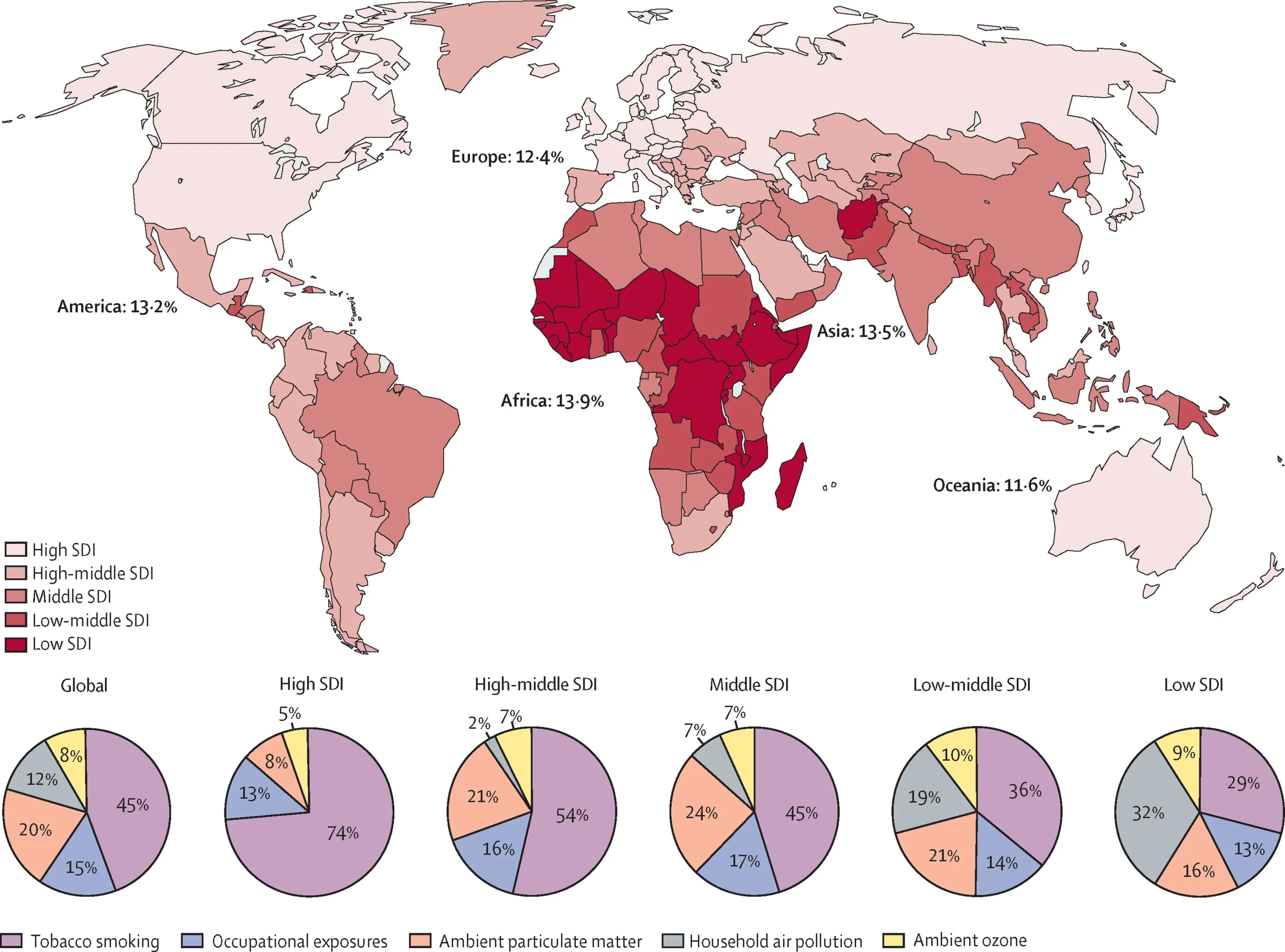Chronic Obstructive Pulmonary Disease (COPD) is a progressive lung disease that affects millions of people worldwide. It is commonly associated with smoking and exposure to certain environmental factors, such as secondhand smoke and air pollution. However, there is a common misconception that COPD only affects smokers. In reality, non-smokers can also develop COPD due to various reasons.
Causes of COPD in Non-Smokers
While smoking is the leading cause of COPD, there are other factors that can contribute to the development of the disease in non-smokers:
- Environmental Exposure: Prolonged exposure to pollutants, such as chemicals, dust, and fumes in the workplace or home, can damage the lungs over time and lead to COPD. Industries like mining, construction, and manufacturing are known to have higher rates of COPD among workers.
- Genetic Factors: Some individuals may have a genetic predisposition to developing COPD, even without smoking. Alpha-1 antitrypsin deficiency is a rare genetic condition that increases the risk of developing COPD. It affects the production of a protein that protects the lungs from damage.
- Asthma: Asthma is a chronic inflammatory disease of the airways that can increase the risk of developing COPD. If asthma is not properly managed or goes untreated, it can lead to irreversible lung damage and progress into COPD.
- Respiratory Infections: Severe respiratory infections, such as pneumonia or bronchitis, can cause damage to the lungs and increase the risk of developing COPD later in life.
- Indoor Air Pollution: Exposure to indoor pollutants, such as cooking fumes, mold, and secondhand smoke, can contribute to the development of COPD, particularly in non-smokers.
Diagnosing COPD in Non-Smokers
Diagnosing COPD in non-smokers can be challenging, as the disease is often associated with smoking. However, if you are experiencing symptoms such as chronic cough, shortness of breath, wheezing, and frequent respiratory infections, it is essential to see a healthcare professional for a proper evaluation.
The diagnostic process usually involves a comprehensive medical history, physical examination, lung function tests, and imaging studies. These tests can help determine the presence and severity of COPD, regardless of smoking history.
Treatment and Management
Once diagnosed, the treatment and management of COPD in non-smokers are similar to those for smokers with the disease. The primary goals of treatment include:
- Smoking Cessation: If the individual is a current smoker, quitting smoking is crucial to slow down the progression of COPD and improve lung function.
- Medications: Bronchodilators and inhaled corticosteroids are commonly prescribed to manage symptoms and reduce inflammation in the airways. Other medications, such as antibiotics and vaccinations, may be recommended to prevent and treat respiratory infections.
- Pulmonary Rehabilitation: Pulmonary rehabilitation programs can help improve lung function, reduce symptoms, and enhance overall quality of life through exercise, education, and breathing techniques.
- Oxygen Therapy: In severe cases of COPD, supplemental oxygen therapy may be necessary to improve oxygen levels in the blood and relieve breathlessness.
Can non-smokers get COPD?
Yes, non-smokers can develop COPD due to factors such as environmental exposure to pollutants, genetic predisposition, asthma, respiratory infections, and indoor air pollution.
What are the symptoms of COPD in non-smokers?
The symptoms of COPD in non-smokers are similar to those in smokers and include chronic cough, shortness of breath, wheezing, and frequent respiratory infections.

How is COPD diagnosed in non-smokers?
COPD in non-smokers is diagnosed through a comprehensive evaluation that includes medical history, physical examination, lung function tests, and imaging studies.
What is the treatment for COPD in non-smokers?
The treatment for COPD in non-smokers involves smoking cessation, medications to manage symptoms and reduce inflammation, pulmonary rehabilitation, and, in severe cases, oxygen therapy.
While smoking is the primary cause of COPD, non-smokers can also develop the disease due to various factors. It is important to raise awareness about the different causes of COPD and ensure that non-smokers receive proper diagnosis, treatment, and support. By understanding the risk factors and taking necessary precautions, we can work towards reducing the burden of COPD in both smokers and non-smokers.
If you want to know other articles similar to Can non-smokers develop copd? causes, symptoms, and treatment you can visit the Respiratory diseases category.


Related Articles